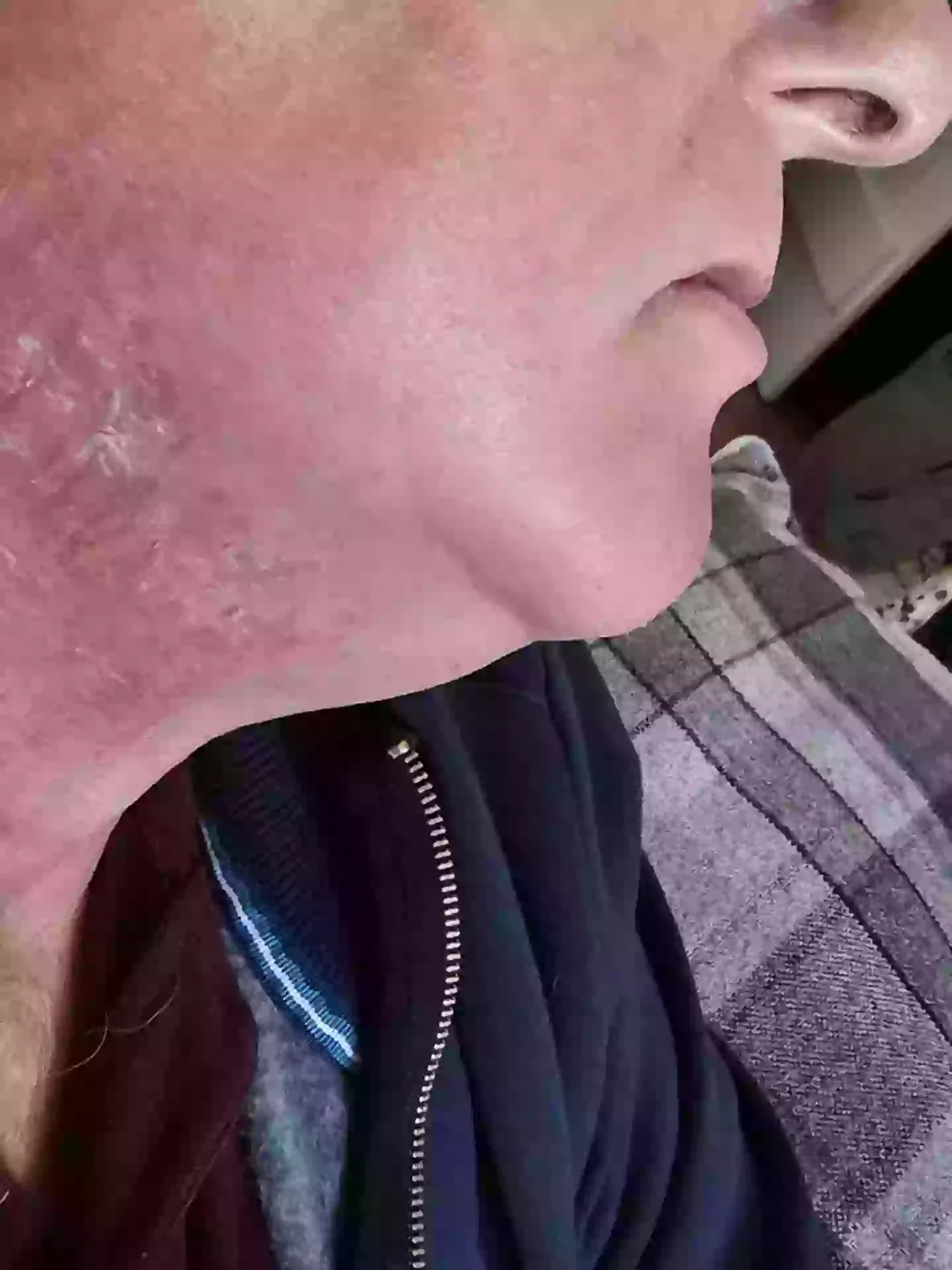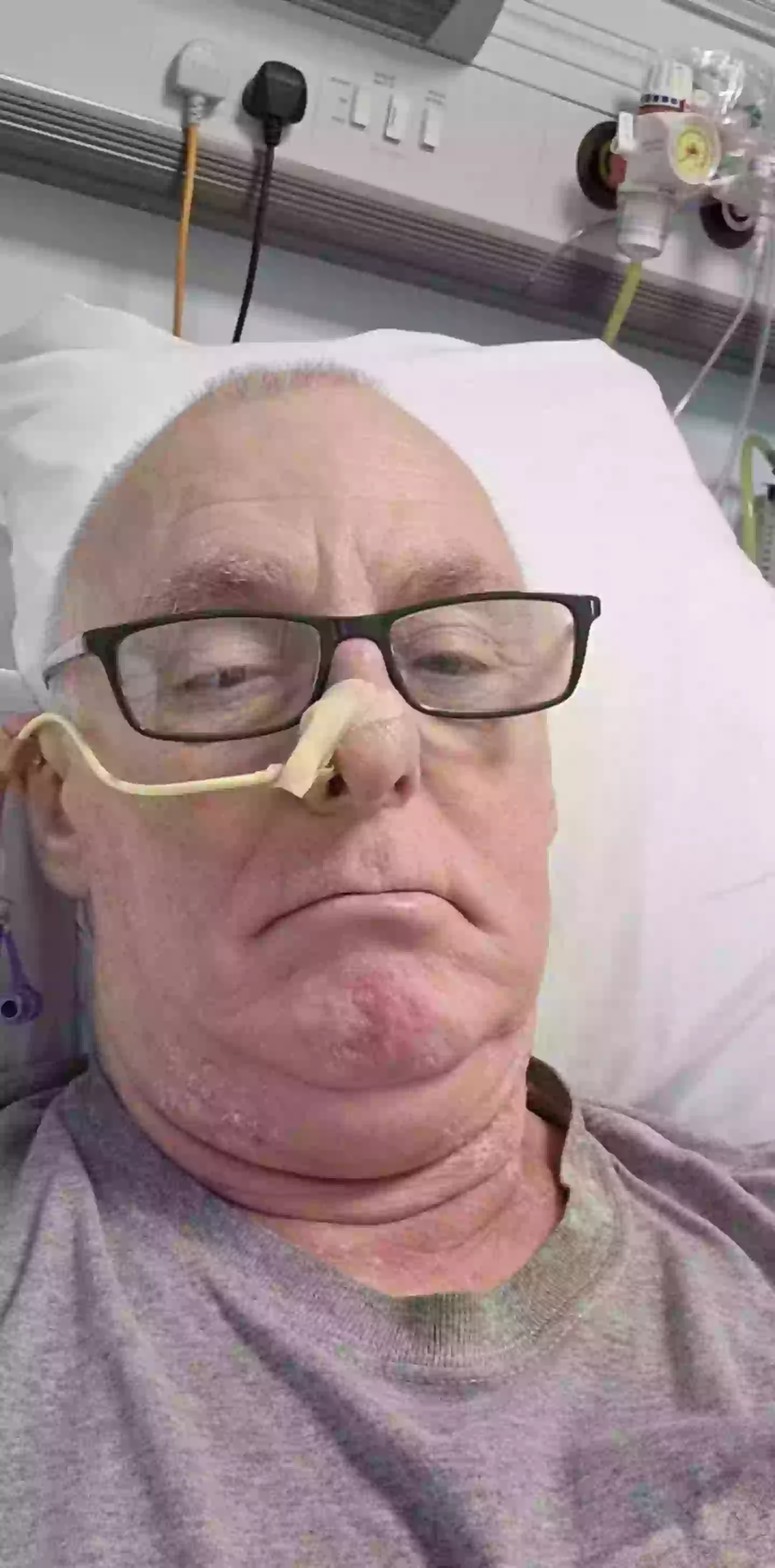A father-of-two was left floored after doctors informed him a suspicious-looking lump in his throat was cancer – which they believe was caused by oral sex.
Frank Lane said he initially thought that health experts were ‘talking a load of rubbish’ when they informed him of the intimate source of his illness.
But after doing some of his own research into the link between cunnilingus and mouth cancer, he realised that the multiple flings he had in his early 20s might be to blame.
The HGV driver, from Basingstoke, Hampshire, explained that his ordeal first began when he noticed a firm lump in his neck which was ‘the size of a boiled egg’ two years ago.
“I was having a shave, felt my neck and thought ‘that feels a bit hard’,” Frank said. “It was just a slight swelling. I was very tired, but I just thought it was down to work and not getting enough sleep. I was also waking up to go to the toilet three or four times a night, but I put that down to getting older.

Frank Lane was left stunned when he found out oral sex was likely the source of the cancer (Kennedy News and Media)
“My partner said to give it a fortnight as it might be my glands – [caused by] the stress of going to the gym.”
Presuming his workouts were the reason for him feeling run down, Frank pressed on as normal, but two weeks later, the mystery lump was still there, so he booked an appointment with his GP.
Frank recalled how his doctor could see the mass ‘sticking out of the top of his tonsils’ when she took a closer look, before she then referred him for a biopsy.
Ten days later, the dad received the devastating news that he had throat cancer, and he claims that medics told him human papillomavirus (HPV) was the cause of it.
For those who don’t know, HPV is a group of viruses which impact the skin and moist membranes that line the body, such as those in the cervix, anus, mouth and throat.
The virus is often spread during sex – including oral sex – and is known to cause changes in the cells of the cervix, which can lead to cervical cancer. It is thought the virus may have a similar effect on the cells of the throat, although further research is needed.

The 60-year-old received the diagnosis after a lump appeared in his neck (Kennedy News and Media)
HPV typically does not cause any symptoms, and most people who have it don’t even realise, as it can take decades for it to develop into something more sinister.
According to the World Health Organisation, it usually takes 15-20 years for cervical cancer to develop after the initial HPV infection.
Frank, who was in the Royal Corps of Signals for 12 years, said he was told that his biopsy results suggested he’d contracted the virus up to 40 years earlier, when he was just 20 and sexually active.
“I was having fun, but I wasn’t messing about with loads of different girls,” he said of his younger years. “When they said I had throat cancer, I thought he was talking a load of rubbish for a split second because I’d stopped smoking 10 years ago.
“[When he said] you’ve got throat cancer from oral sex…it was a surprise. When I got told, I was thinking ‘f*ck that, I’m never doing it again’.
He explained that some of his work colleagues ‘laughed’ and didn’t believe him when he told them about the source of his cancer.

The dad has now got the all clear after undergoing treatment (Kennedy News and Media)
“I told them to Google it and I saw the colour drain from their faces,” Frank said.
In January last year, the dad underwent two rounds of chemotherapy at Henley Hospital in Henley-on-Thames, Oxfordshire.
As this unfortunately didn’t touch the tumour, doctors recommended a gruelling six-week course of radiotherapy that blasted the cancer – which he described as the ‘most painful thing he’s ever experienced in his life’.
Now, 16 months on from completing treatment, Frank has got the all clear and is checked over every two months to ensure he’s still on the right track.
Sharing some tongue-in-cheek advice for others, he laughed: “My advice would be don’t have oral sex.
“For anyone who can’t follow that, my advice would be if you have any unusual symptoms don’t ignore them, get it checked out.”
Source link
